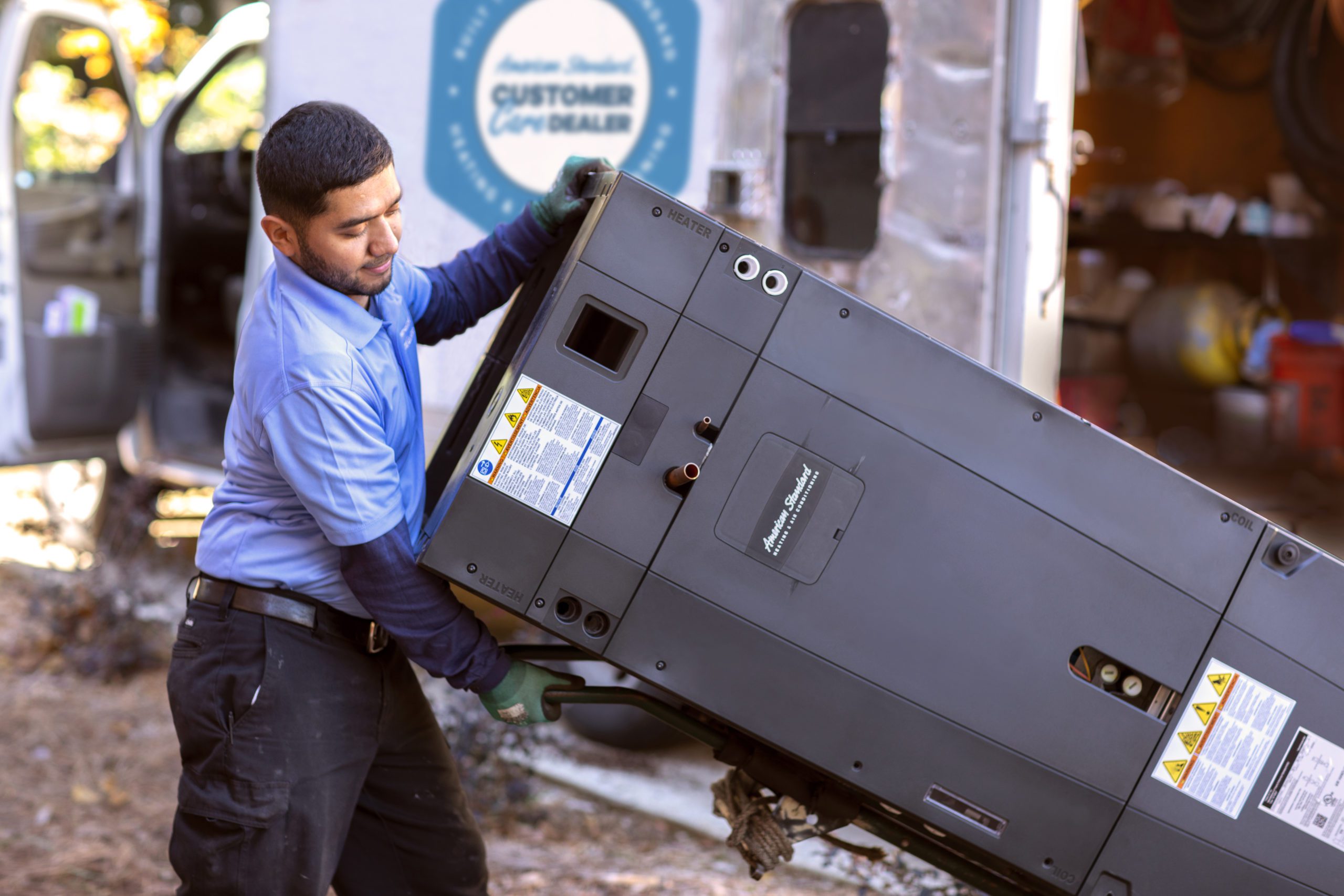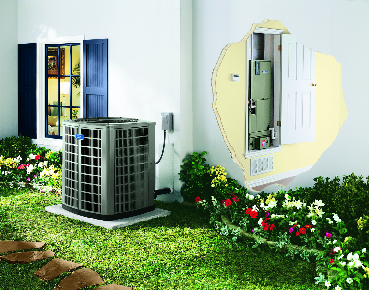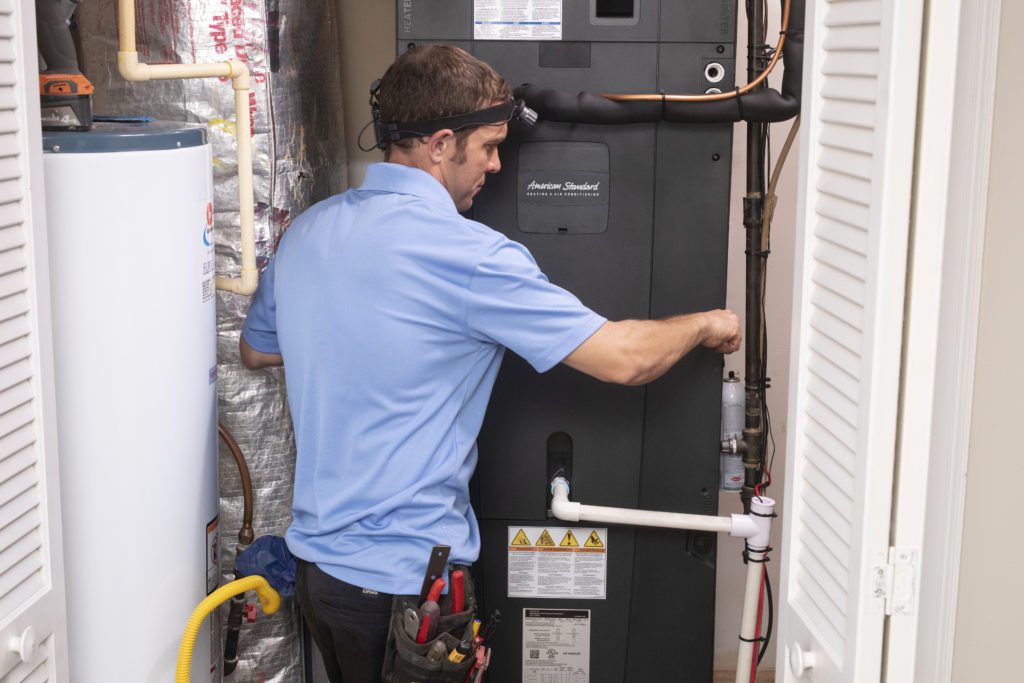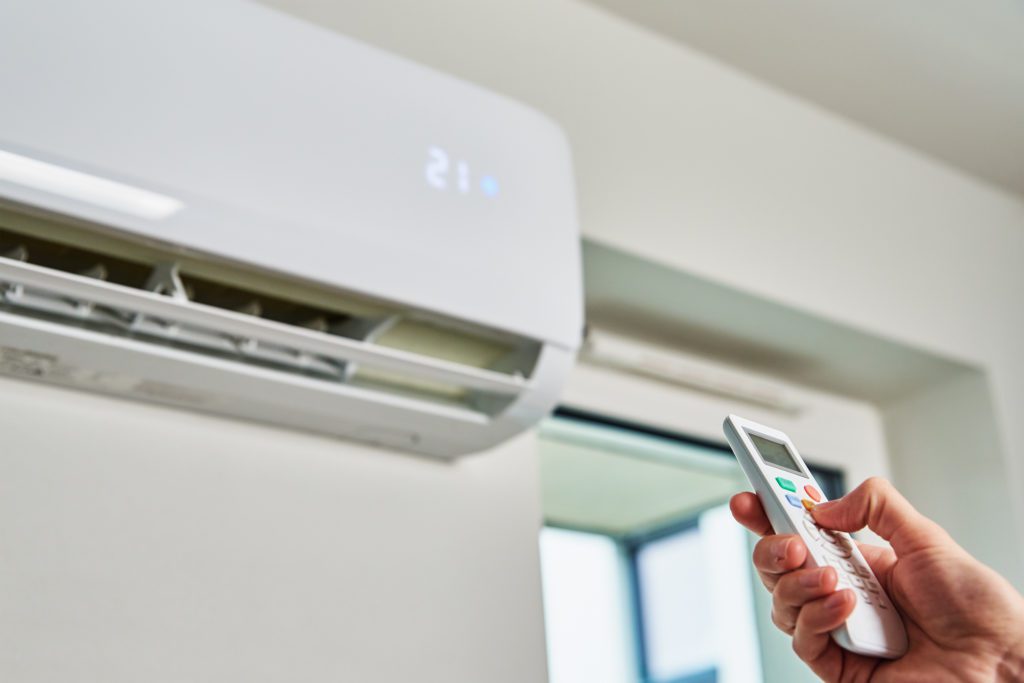
The State of California plans to ban gas furnaces and water heaters installed after 2030. SMUD also plans to become carbon free by 2030. Some California cities already prohibit gas appliances in new construction homes.
Part of their combined initiative is offering incentives to homeowners who convert natural gas and propane appliances to all-electric (heat pump) versions now.
Heat Pumps are not new, however they have been dramatically improved over the years. Here is some useful information to help you decide if a heat pump conversion is the best HVAC option for you.
HOW HEAT PUMPS WORK
It begins by extracting heat from a source (in this case the outside air). That warmth is then absorbed by the refrigerant (commonly referred to as Freon) and the gas is compressed. Refrigerant is run through the system via copper lines where it zips through a coil (similar to a radiator) and the central system’s fan inside the home pushes air across the coil to warm it. The air is then distributed into the house through the ducting system and into the rooms of your home. Exactly how an air conditioner works, but in reverse.
PROS OF HEAT PUMPS
- These systems use only electricity to heat your home, meaning less dependency on fossil fuels.
- SMUD is customer owned vs PG&E shareholder owned. Historically less volatile rate changes than gas.
- Can work great in combination with solar panels, however we’ll touch more on that later.
- Heat pumps don’t dry out the air. Gas heating is VERY drying, so if you are sensitive to the dryness of a traditional gas heater, this is where heat pumps shine.
- Not a gas appliance so no gas, fire, or carbon monoxide risk. Making it safer for you and your family.
- Runs more efficiently when sized, installed, and run by the homeowner properly.
- Monetary incentives. Between the local utilities, state, and federal tax credits- there has never been a better time to convert your gas furnace to heat pump*.
CONS OF HEAT PUMPS
- There is a learning curve. Central heat pumps work drastically different than a gas forced air furnace. You need to run the system more constantly (but it is much more efficient!) We recommend no more than a 5° difference from the coldest thermostat setting to where you want it set when you are home.
- Cooler air created (but still warm!) The air coming out of a gas furnace is usually around 120° where a heat pump generally produces 95° air. We as humans are 98°, so if you put your hand up to the vent of a heat pump it will seem cooler, even when it is in fact heating.
- Efficiency starts to diminish at about 40° outdoor temperature. Remember when I said it is using the outside air to help pre-heat the refrigerant? Just like in the summer when the hotter it gets outside the harder it is for the system to perform at peak efficiency, heat pumps are no different in winter.
- Potential infrastructure issues with more homes and cars being electrified. How much demand over supply do we have now? We don’t have an answer- this is a question for our utilities and government to address.
- Will we see non-heating days during cold snaps like we see no-cooling days during heatwaves? “It’s too cold, you can’t run your heater!” We don’t know for certain.
- The outdoor unit runs both heating and cooling so location is key. However, the existing location can be moved in most homes, heat pump or not!
USING SOLAR TO SAVE MONEY
“I have solar, this is great, I’ll get all my heat for free!” First and foremost, awesome for having solar panels on your home! However, everything is based on solar hours when it comes to how much solar energy is collected to be able to energize your home. What does this mean? In the winter- the sun is lower in the sky, the days are much shorter, and weather determines how much the sun is out. This means that your solar panels can’t collect as much energy in the winter as they do in the summer. Also, you have more lighting needs in the winter because of the shorter and darker days. While new heat pump systems are much more efficient than in years past, they still consume electricity so there is a very high likelihood that you’ll run out of ‘free’ solar power based on the load necessary to light and heat your home in the darker colder months.
NOT QUITE READY TO GO ALL ELECTRIC?
Another option to consider is a dual fuel, or hybrid, system. This is exactly as it sounds. It gives you the efficiency and comfort of the heat pump with a back-up heat source using gas. We set the system to where it will run as a heat pump until it drops down to an outdoor temperature low enough where it would be more efficient to run on gas. The additional benefit is when the heat pump needs to go into a defrost cycle, the gas supplements to keep the air warm pushing through the home. The best of both worlds: ideal for those who are on the fence about going to a fully electrically heated home.
GO DUCTLESS
In addition to central forced air systems, there is an alternative choice using a ductless (also called mini-split) heat pump system. The most efficient way to heat and cool any home is to only heat or cool the rooms you are using. Makes sense, right? This is where a ductless system shines. The are controlled by individual room thermostats so you are only running the system in the rooms you are in. Watch any international home improvement show and they only heat and cool with ductless systems.
Want to know more about how a heat pump works differently than a gas forced air heating system before making the plunge? Check out our previous article here going over some of the ways heat pumps work differently in the winter time.
Have a question we haven’t covered? Please feel free to reach out via email or phone at 916-481-0658.
*Not all utilities are offering incentives. The closer we are to the prohibition dates, the incentives will likely expire. Please consult your trusted CPA about the Federal Tax Credit (tax liability matters, math is hard, you know the drill.)



